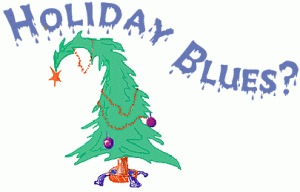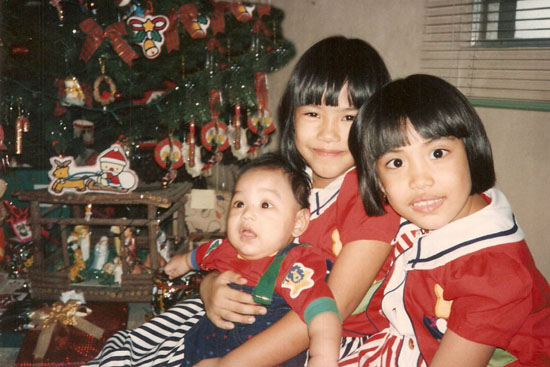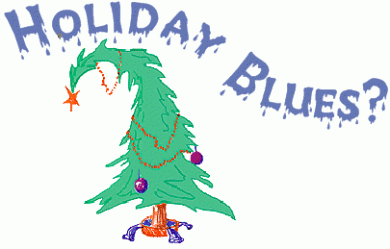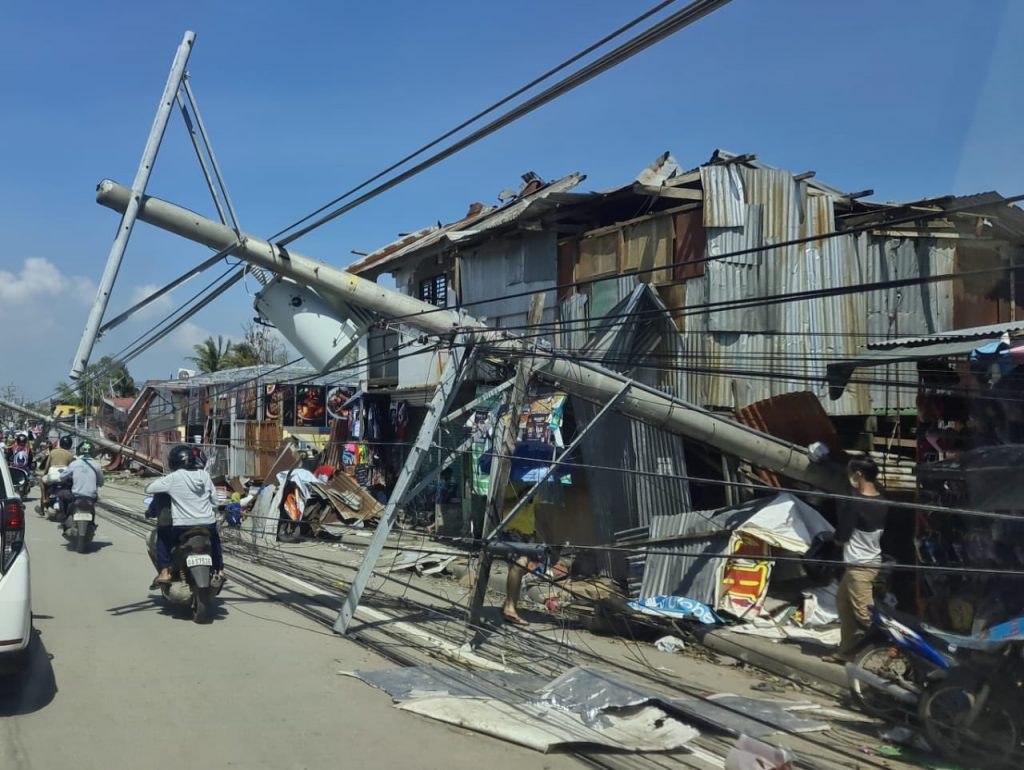There is nothing abnormal about having the “holiday blues,” which are more like a mood than any sort of lasting condition. Depression, anxiety, and other psychological symptoms are associated with the holidays because this season brings back memories of a happier time in our lives.
Listen to my podcast.
A few Christmases ago, I received an email from my husband about how he suddenly felt pangs of holiday blues hitting him once again. For the past years, the Christmas season has been a dreaded holiday for my husband. When he is in that mood, he can’t stand those Christmas carols, bombarding him from the car stereo, malls, restaurants and even in our own home. Like most of us, the holidays bring pleasant memories, laughter, family togetherness, the element of surprise, and lots of holiday cheer. Holiday blues hit those wishing to recapture feelings associated with past , real or fantasized past holidays.

I know my husband is not alone and thought of some of you who may feel the holiday blues.
Who gets affected by the holiday blues?
- Victims of disaster areas. For instance, those who lost their homes and work because of Typhoon Odette.

Photo source: Twitter account of VP Leni Robredo. Scene is from Cebu
2. Families of overseas workers. They see other happy families who are together on Christmas day and wonder when they will be all together one Christmas day. The song, I’ll Be Home for Christmas is a classic for all those living from a distance.
3. Soldiers, doctors, nurses and medical staff who have to work on Christmas day.
4. Those who have recently lost a loved one.
5. Couples who are estranged or are apart during the holidays. Now we know where the song, Pasko na Sinta ko is dedicated to.
6. Individuals who are single and lonely and see other couples so sweet and cuddly as they walk past them.
7. Those who experience financial pressures on the holidays including purchase of gifts, clothes and party items.
8. Those who experience unrealistic expectations from friends, church or work associates to take part in seasonal activities outside of your normal routine.
9. Those who feel conflicting family expectations and demands that create guilt and resentment.
and many more who are separated from loved ones, because of death, distance and illness.

That night I gave my husband a hug as we cuddled in bed , then told him that I have been writing the Holiday Blues and Coping and Surviving Christmas on the month of December for the past years. I fired up my browser and read those two entries to him. He smiled. “your entries are still relevant even if it is old”. What caught his attention is this portion:
You or your loved one might have a temporary spell of the blues without knowing it. There is nothing abnormal about having the “holiday blues,” which are more like a mood than any sort of lasting condition. Depression, anxiety, and other psychological symptoms are associated with the holidays because this season brings back memories of a happier time in our lives.
Then we talked of our progress the past years, especially in creating new holiday traditions, one of which was to start and take part in comforting other families in grief and even starting this blog.

I continued to cradle my husband in my arms. As I droned on and on, I suddenly heard unearthly sounds of his snoring. He must have felt some bit of comfort knowing that this too shall pass.
Not that I don’t miss my son or feel any holiday blues. I feel the pangs now and then and tears fall. I just say to myself, “this will pass. Go with the flow”. December 5 was my dad’s 13th death anniversary and I feel a tug in my heart but I also recall his booming laughter that never fails to lift my spirits.

How you can beat the blues?
First, How will you recognize you have the blues?
 How will you recognize you have the blues?
How will you recognize you have the blues?
- Headaches
- An inability to sleep or sleeping too much
- Changes in appetite that cause either weight loss or gain
- Agitation and anxiety
- Excessive or inappropriate feelings of guilt
- Diminished ability to think clearly or concentrate
- Decreased interest in activities that usually are enjoyable, such as: food, sex, work, friends, hobbies and entertainment.
Second, How does one cope with the Holiday Blues?
 How does one cope with the Holiday Blues?
How does one cope with the Holiday Blues?
For anyone feeling blue during the holidays can follow some very basic, common sense steps to help in coping with the blues.
- Take things one day at a time and if need be one hour at a time.
- Try to maintain a normal routine. Keep doing your normal daily activities.
- Get enough sleep or at least enough rest.
- Regular exercise, even walking, helps relieve stress, tension and improve moods.
- Eat a healthy, balanced diet. Limit high-calorie foods and junk food.
- Avoid using alcohol, medications or other drugs to mask the pain.
- Do those activities or things and be with the people that comfort, sustain, nourish, and recharge you.
- Remember the healthy coping strategies you have used in the past to survive challenges. Draw on these strengths again.
What does one do to feel less blue during the Holidays
There are several things that can help in making it easier to manage the blues.
- Determine your priorities and establish realistic goals for the holidays.
- Delegate some responsibilities to others.
- Take time for yourself.
- Minimize financial stressors by setting a budget and sticking to it.
- Enjoy free holiday activities.
- Think about giving a free gift from your heart. Your time or your presence.
- Be around supportive people.
- Volunteer and help someone else.
- Create a New Holiday Tradition.
- Find a new place or a new way to celebrate.
Just take baby steps if all these overwhelming.
Source: Holiday Blues – Feeling Sad, Lonely or Depressed During the Holidays?
Image via steamboatcounseling.com


I can truly relate into this one….eversince my hubby become an OFW, our holidays has been a li’l sad, no matter how hard I tried kulang pa rin…imagine my little bunso (now 5 yrs old), never a single xmas with his Papa….i hope that by 2010 if our timeline will succeed all our family xmases will be together
cielos last blog post..Dreams Unfolding in My Eyes
Oh Cielo, I will remember you on Christmas day. I know it isn’t the same without your hubby but it is not going to be permanent. Future Christmases will happen.
Hey Noemi! Thanks for the tips.
My whole family lives abroad and I’m the only one left here in Manila. I miss them terribly and it’s so hard to be a lot cheerful over the coming holidays when you know that you won’t be celebrating it with them. So, instead of me moping around, I booked myself a flight out of town and will be spending the holidays over to my friends’s place in Cebu. Doon ako makikiPasko at Bagong Taon. I’ll visit Bantayan Island too to make my travel more worthwhile. 🙂
dyosas last blog post..A MOON GARDEN TAGAYTAY WEEKEND | AFTERNOON DELIGHT (P.3)
That’s the spirit. See you created a new way of spending the holidays. I am from Cebu and I have never been to Bantayan. It’s good you will be surrounded by loving friends.
I will think of you on Christmas day.
This entry hits me hard. I just broke up with my boyfriend. I hate seeing all these couples
i’m one of those who are separated with family during Christmas due to distance and budget constraints. they’re in the province while i’m here in manila.i got used to the odd setup already. i fight the loneliness. we’re six in the family.
today, we’re three here in manila and only three is in the province. time will come that we will be complete during Christmas. that i promise to myself.
let’s all try to be happy and grateful not only this holiday season but also every day because there are many wonderful reasons to feel so. Merry Christmas! 🙂
edelweizas last blog post..Happy Weekend to All!
yes we can celebrate in our own special way even if we are far away. We just need to create our own special tradition.
Nakakarelate ako, first with my dad who had been an OFW for more almost 18 years. He went abroad when I was only 3 and came back for good when I was already 21. Yung 18 years na yun I don’t remember a year na nag-spent sya Christmas with us.
During the time naman na he was already home na, I had to go at ako naman ang nakaexperienced ng naranasan nya as an OFW. At ngayon nararanasan ko pa din dahil ang husband ko eh working abroad din. Buti na lang sa New Year we’d get to spend it with my husband in his home, but then again, I’ll be away from my family. Sad no? Di pwede buo at sabay hehe! I hope next year pwede na. 🙂
Mitchs last blog post..26 Days More
Mitch you have your own tradition because of the uniqueness of your family situation but you are able to still celebrate with joy, right?
hi ms. noime,
Now, it’s clear, based from this post that I’m indeed having holiday blues, been really down this past few days, can’t seem to feel the holiday rush and has not done any malling yet, you see my mom passed away two months ago and it’s the family’s first christmas without her….. the last time I tried going to the mall was to buy candles for the 40 days and I just ended up rushing out the door since I can’t barely control my emotions while hearing christamas carols. Sigh…..
By the way, hope you could help me, as I am tasked to look for a charitable institution or charitable hospital wards where me and my officemates can share our blessings this christmas, in liue of our annual christmas party. Thanks. Godbless…..